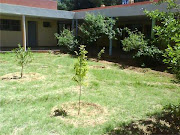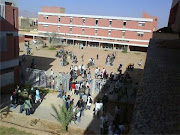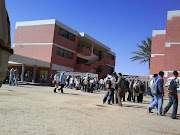Who are refugees?
A refugee is a person who, "owing to a well-founded fear of being persecuted for reasons of race, religion, nationality, membership of a particular social group, or political opinion, is outside the country of his nationality, and is unable to, or owing to such fear is unwilling to, avail himself of the protection of that country..." (The United Nations Convention Relating to the Status of Refugees, 1951).
Imagine being so scared of being killed, tortured or victimised that you would leave your home, all your possessions and connections with your community, for an uncertain future. Fear drives people to leave with only a few belongings on a journey which is full of uncertainty. Will it be safe? Will they be able to return? In 2004 there were over 17 million refugees and 22 million internally displaced people who had taken that risk.
Who are 'people of concern'?
'People of concern' is a generic term used to describe all people for whom the United Nations High Commissioner for Refugees (UNHCR) is internationally responsible. They include:
• Refugees - people who are recognised as fleeing from persecution and who have left their own country. They come under international protection
• Asylum seekers - people who have fled their own country, and are seeking recognition by another country as a refugee and acceptance for resettlement. They are dependent on the good will and generosity of the country to which they have fled.
• Returned refugees - the unstable situations which have caused people to flee take time to settle, so the UNHCR monitors their situation for 12 months after they return home.
• Internally Displaced People (IDP) - some people who flee their homes in fear, but do not cross over their country's international borders come under UNHCR protection after the invitation by the government of their own country.
The increasing numbers of IDPs and awareness for the need for international protection has led to the development of the Guiding Principles on Internal Displacement.
• Stateless person - someone who is not considered a national by any country.
How are the rights of refugees protected?
The United Nations Convention Relating to the Status of Refugees (1951) and its 1967 Protocol outline the rights and processes protecting the needs of those who are recognised as refugees. A total of 147countries have committed themselves to upholding the provisions of one or both of these documents.
Most people fleeing their country conflict and persecution seek asylum in their nearest neighbouring country. Often these countries need support to provide for the sudden arrival of large numbers of uprooted persons. The Office of the United Nations High Commissioner for Refugees (UNHCR) co-ordinates contributions by government and non-government organisations to protect refugees, provides assistance such as financial grants, food, tools and shelter, schools and clinics, and attempts to find durable solutions to a given refugee crisis.
How are the rights of IDPs protected?
Concern for the increasing numbers of internally displaced people (IDPs) and questioning of the sovereignty of governments the UN Commission on Human Rights introduced the Guiding Principles on Internal Displacement in 1998. The Guiding Principles recognise the rights of internally displaced people and the obligations of governments and the international community toward these people.
In general the protection of IDPs is limited as governments of people affected may be either unable or unwilling to assist them. Security or political concerns and limited financial resources restrict the ability of international agencies and NGOs to offer assistance and provide protection.
Life in flight
Leaving home hurriedly, people often have few resources and are vulnerable to further attack. Sometimes they have many days of travel, with little food and in fear of their lives. If they get to safety, they rely on the people living in the area to which they have fled, who often have few resources to share. International organisations take time to mobilise the support necessary to provide refugees with adequate food, water and sanitation, shelter, healthcare, schools, trauma counselling and income generating activities so that they can regain some independence quickly. International organisations work together to provide these basic necessities.
When people arrive at an area which is set up as a temporary refugee shelter, they are registered for their protection and to their determine needs. Defining who and where people are assists in the supply of sufficient resources, especially for those with special needs such as separated children, those needing medical attention and the elderly.
Each situation is different. The length of time taken to resolve the conflict, resources available to meet needs, and the international ability to find solutions all impact on the ability of refugees to rebuild their lives.
How are refugee issues resolved?
Return home
The majority of refugees are able to return home after conflicts have ended, but a great deal of support is necessary to rebuild lives and infrastructure, and to restore stability. People who have been displaced need counselling, and practical assistance such as shelter, food and other items to restart their lives. People who have been involved in conflicts need alternative work. Homes, schools, health clinics, water and sanitation systems, and roads often need to be rebuilt. Landmines may need to be cleared. Trust between people who have been fighting needs to be re-established.
Resettlement in a new country
Some refugees cannot go home or are unwilling to do so, usually because they fear they would face continued persecution. In such circumstances, UNHCR helps to find them new homes, either in the country of asylum, or in a third country. This may take a long time, as there are more people in need than places available. Many nations accept refugees on a temporary basis during the early phases of a crisis but, are unable to provide long term support. Some more developed nations resettle refugees through a quota or a demand basis. Resettling refugees who have suffered a great loss, for example those who have suffered the destruction of their homes, families and sense of identity, requires tremendous support, as they usually have to learn a new culture and language, establish a new social network and earn a living.
.jpg)
.jpg)

.jpg)
.jpg)







No comments:
Post a Comment